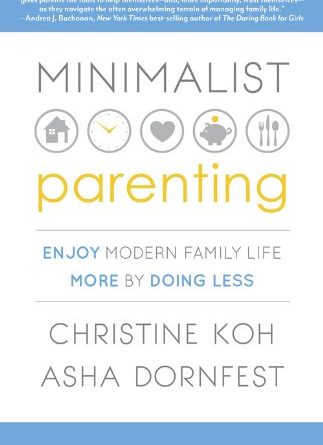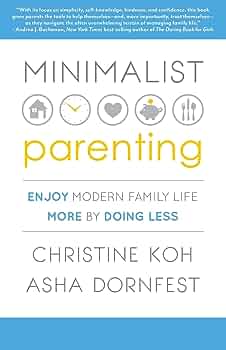
Welcome to Nelly’s Life, a place where minimalism and veganism intertwine to create a more intentional and compassionate way of living. I am Nelly Simpson, a mother of three and a training nutritionist, and through my personal journey, I have discovered the transformative power of intentional living. On NellysLife.com, you’ll find personal stories, practical advice, and thought-provoking insights on minimalism and veganism. Join me as we delve into the benefits of a simplified life, explore plant-based recipes, and discuss the ethical and environmental considerations of this lifestyle. Let’s embark on a journey of personal transformation together, where purpose, simplicity, and wellbeing are prioritized. Welcome to Nelly’s Life, where minimalism and veganism converge to create a life that is not just lived but truly cherished.
Table of Contents
Chapter 1: Understanding Minimalist Parenting
What is minimalist parenting?
Minimalist parenting is a philosophy and lifestyle approach that focuses on simplifying the parenting journey by prioritizing what truly matters and eliminating unnecessary clutter, both physical and mental. It involves creating a nurturing environment that allows children to flourish, while also promoting intentional living and mindful decision-making.
Benefits of minimalist parenting
Minimalist parenting offers numerous benefits for both parents and children. By reducing the overwhelming amount of toys, clothes, and other material possessions, parents can create an organized and clutter-free space that is easier to manage. This not only saves time and reduces stress but also promotes a sense of calm and peace within the home.
Minimalist parenting encourages parents to focus on quality over quantity. Instead of buying into the consumerist culture and constantly purchasing new items, minimalist parents carefully choose toys, clothes, and other essentials, ensuring they align with their values and serve a purpose. This not only saves money but also teaches children the value of what they have and instills a sense of gratitude.
Additionally, minimalist parenting encourages parents to prioritize experiences and relationships over material possessions. By simplifying schedules and reducing extracurricular activities, parents can spend more quality time with their children, fostering stronger bonds and creating lasting memories.
Principles of minimalist parenting
Minimalist parenting is guided by a set of principles that help parents navigate their journey:
-
Intentional living: Minimalist parents prioritize their values and make intentional choices that align with those values. They carefully consider what is truly important and eliminate the excess.
-
Simplicity: Minimalist parenting promotes simplicity in all aspects of life. This includes simplifying schedules, possessions, and activities, allowing for a more balanced and fulfilling life.
-
Mindfulness: Mindfulness is at the core of minimalist parenting. By practicing mindfulness, parents can be fully present in each moment, allowing for deeper connections with their children and a greater appreciation for the little things in life.
-
Authenticity: Minimalist parents strive to be authentic and true to themselves and their values. They resist societal pressures and expectations, choosing to parent in a way that feels right for their family.
Chapter 2: Preparing for Parenthood the Minimalist Way
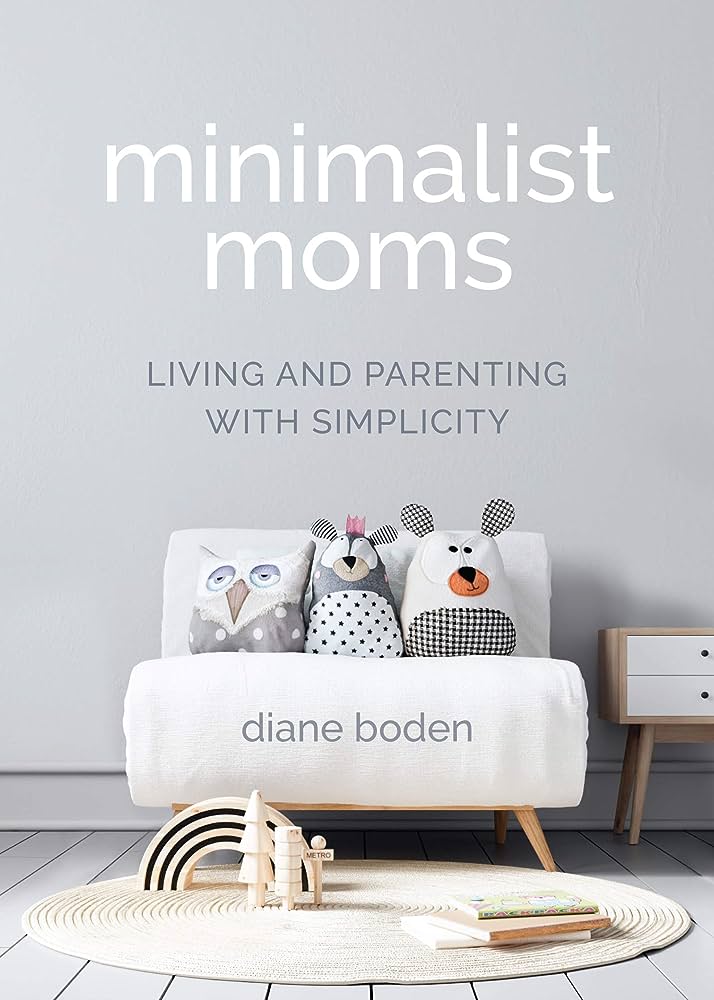
Creating a minimalist mindset
Preparing for parenthood with a minimalist mindset begins before the arrival of your child. It involves reflecting on your values, priorities, and the type of environment you want to create for your child. Take the time to declutter your own life and set intentions for the kind of parent you want to be.
Decluttering and organizing for a minimalist nursery
When designing a minimalist nursery, focus on the essentials and create a calm and organized space. Start by decluttering and only keeping the necessary items. Opt for furniture and decor that have multiple functions and provide sufficient storage. Keep the color palette neutral and choose high-quality, long-lasting items.
Essential items for minimalist parents
Minimalist parents prioritize functionality and quality over quantity when it comes to baby essentials. Focus on acquiring quality items that serve multiple purposes, such as a versatile stroller, a comfortable baby carrier, and a few high-quality toys that promote open-ended play. Prioritize items that will grow with your child and withstand the test of time.
Chapter 3: Embracing Simplicity in Parenting

Simplifying schedules and activities
Minimalist parenting encourages simplifying schedules and activities to create more meaningful and quality time with your children. Prioritize activities based on your family’s values and interests and be mindful of overloading your child with too many commitments. Allow for unstructured play and downtime, as it is essential for a child’s development.
Practicing mindful parenting
Mindful parenting involves being fully present and engaged with your child, without judgment or distractions. It involves actively listening, empathizing, and responding to your child’s needs. By practicing mindful parenting, you can cultivate a deeper connection with your child and foster a sense of security and emotional well-being.
Letting go of societal pressures and expectations
Minimalist parenting encourages parents to let go of societal pressures and expectations and instead focus on their own values and priorities. This may involve resisting the urge to overschedule your child, resisting the pressure to provide the latest toys or gadgets, and embracing a slower-paced and more intentional approach to parenting.
Chapter 4: Minimalism and Child Development
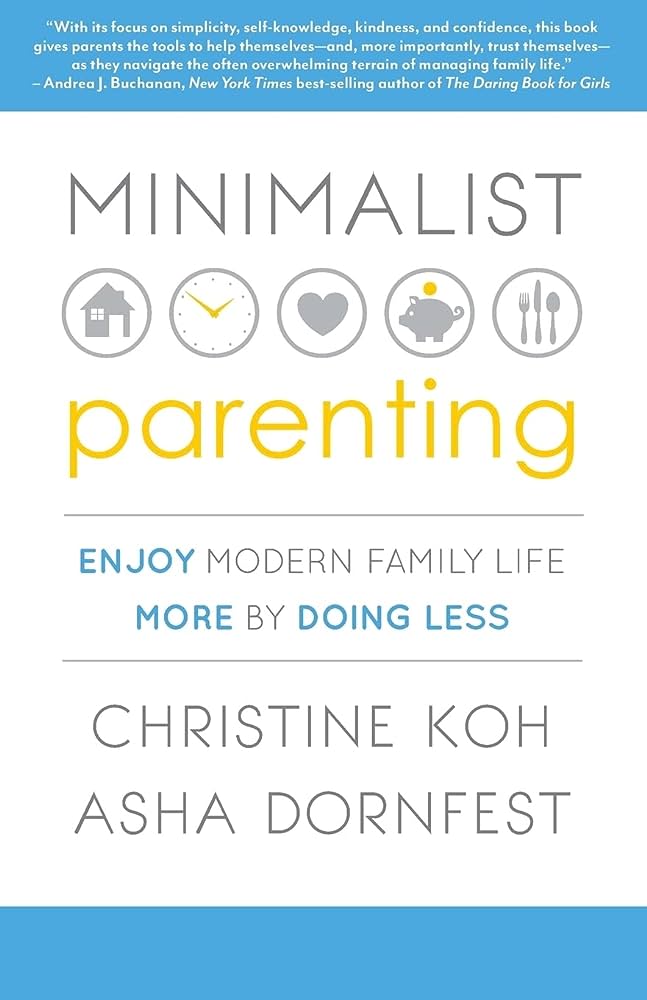
The impact of minimalism on children’s well-being
Minimalism can have a positive impact on children’s well-being by reducing stress, promoting creativity and imagination, and fostering a sense of independence. By creating a clutter-free and organized environment, children can focus better, engage in more meaningful play, and develop important life skills.
Fostering independence and creativity through minimalism
Minimalist parenting encourages children to develop independence and creativity by providing them with opportunities for open-ended play, exploration, and self-discovery. By having fewer toys and distractions, children are encouraged to use their imagination, problem-solving skills, and develop a greater sense of self.
Creating a nurturing minimalist environment
A nurturing minimalist environment involves creating a peaceful and organized space where children can thrive. This includes having designated areas for different activities, providing age-appropriate materials and toys, and implementing a daily routine that promotes a sense of security and trust.
Chapter 5: Minimalist Parenting Tips for Different Stages
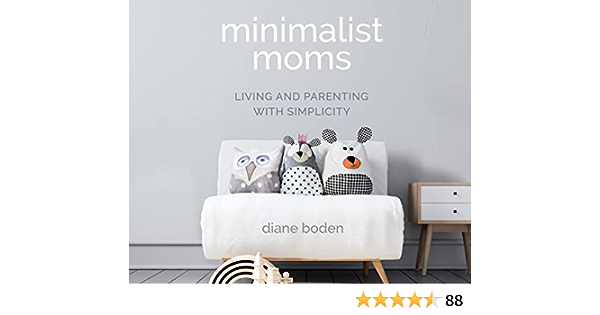
Minimalist parenting during infancy
During the infancy stage, focus on the essentials and avoid accumulating unnecessary baby gear and toys. Invest in quality items that serve multiple purposes, such as a convertible crib and a versatile baby carrier. Limit the number of toys and opt for those that promote sensory development and open-ended play.
Minimalist parenting for toddlers and preschoolers
For toddlers and preschoolers, encourage open-ended play and limit screen time. Provide a variety of age-appropriate toys that encourage creativity and problem-solving skills. Avoid subscribing to the latest trends and instead focus on quality items that will stimulate your child’s imagination and withstand the test of time.
Minimalist parenting for school-age children
As children enter school-age, it’s important to continue prioritizing experiences over material possessions. Encourage your child’s interests and engage in activities that align with their passions. Foster a love for reading and learning, and create a designated space for homework and creativity.
Chapter 6: Minimalist Parenting in the Digital Age

Limiting screen time and digital distractions
In the digital age, limiting screen time is crucial for children’s well-being. Set clear boundaries and guidelines around screen time and educate your child about responsible technology use. Encourage alternative activities such as outdoor play, reading, and engaging with others face-to-face.
Teaching digital minimalism to children
Teaching digital minimalism to children involves helping them develop a healthy relationship with technology. Encourage them to be mindful of their screen time, to prioritize real-life experiences, and to use technology as a tool rather than a constant distraction. Model responsible technology use yourself to set a positive example.
Balancing technology with real-life experiences
Finding a balance between technology and real-life experiences is key in minimalist parenting. Encourage your child to engage in a variety of activities, both online and offline. Encourage outdoor play, reading, creative pursuits, and spending quality time with friends and family.
Chapter 7: Minimalism and Sustainable Parenting
Reducing waste through minimalism
Minimalism and sustainable parenting go hand in hand in reducing waste. Minimalist parents prioritize quality over quantity and avoid accumulating unnecessary items, which reduces waste. Additionally, they opt for eco-friendly and sustainable products, such as cloth diapers, reusable containers, and non-toxic cleaning supplies.
Choosing eco-friendly and sustainable products
Minimalist parents make conscious choices when it comes to choosing eco-friendly and sustainable products for their children. This includes opting for organic and ethically made clothing, eco-friendly toys, and sustainable household products. By supporting environmentally conscious brands and products, parents can reduce their carbon footprint and teach children about conscious consumerism.
Teaching children about environmental stewardship
Minimalist parenting provides an opportunity to teach children about the importance of environmental stewardship and sustainability. Parents can involve children in activities such as recycling, composting, gardening, and conservation efforts. By instilling these values from a young age, children learn to appreciate and care for the environment.
Chapter 8: Minimalism and Emotional Well-being
Creating emotional balance through minimalism
Minimalist parenting promotes emotional well-being by creating a calm and clutter-free environment. By reducing excess stimuli, children and parents can experience greater emotional balance and calmness. Minimalism encourages parents to prioritize self-care and mental health, allowing them to be more present and attuned to their child’s needs.
Teaching mindfulness and self-care to children
Mindfulness and self-care are integral aspects of minimalist parenting. Parents can teach children simple mindfulness techniques, such as deep breathing or guided meditation, to help them manage stress and navigate their emotions. Additionally, parents can model self-care practices, such as setting boundaries and engaging in activities that bring joy and recharge their own energy.
Cultivating gratitude and contentment
Minimalist parenting cultivates a sense of gratitude and contentment by encouraging children to appreciate what they have and to find joy in simple pleasures. Parents can foster gratitude by having regular conversations about the things they are thankful for and by practicing acts of kindness and giving back to the community.
Chapter 9: Overcoming Minimalist Parenting Challenges
Dealing with societal resistance and judgment
Minimalist parenting may face resistance or judgment from others who don’t understand or appreciate the lifestyle. It’s important for parents to stay true to their own values and not be swayed by societal pressures. Surround yourself with supportive and like-minded individuals who can provide encouragement and understanding.
Managing gifts and the consumerist culture
Minimalist parents often face challenges when it comes to managing gifts and the consumerist culture. Communicate your values and preferences to family and friends, and encourage them to give experiences or consumable gifts instead of material possessions. Focus on the joy of giving and the importance of experiences rather than accumulating more stuff.
Navigating minimalist parenting with family and friends
Navigating minimalist parenting with family and friends may require open and honest communication. Explain your parenting philosophy and the benefits you have experienced. Encourage loved ones to embrace the minimalist mindset and to prioritize quality time and experiences over material possessions.
Chapter 10: Minimalism as a Way of Life
Extending minimalism beyond parenting
Minimalism can extend beyond parenting and become a way of life. Embrace minimalist principles in other areas of your life, such as your home, work, relationships, and personal belongings. Simplify all aspects of your life to create more space and time for what truly brings you joy and fulfillment.
Minimalism as a tool for personal growth
Minimalism can be a powerful tool for personal growth and self-discovery. By eliminating distractions and excess, you can focus on your values, passions, and personal goals. Minimalism encourages introspection, self-reflection, and personal development, ultimately leading to a more intentional, meaningful, and fulfilled life.
Living intentionally and with purpose
At its core, minimalist parenting is about living intentionally and with purpose. It involves making conscious choices, prioritizing what truly matters, and eliminating the excess that weighs us down. As a minimalist parent, you have the power to create a life that aligns with your values, fosters meaningful connections, and brings joy and contentment to both you and your child.
By embracing minimalist parenting, you can embark on a transformative and rewarding journey that allows you to savor the precious moments of parenthood and cultivate a life of simplicity, purpose, and well-being. So, start decluttering, simplifying, and embracing the minimalist mindset, and let the joy of intentional parenting guide you on this beautiful path.




